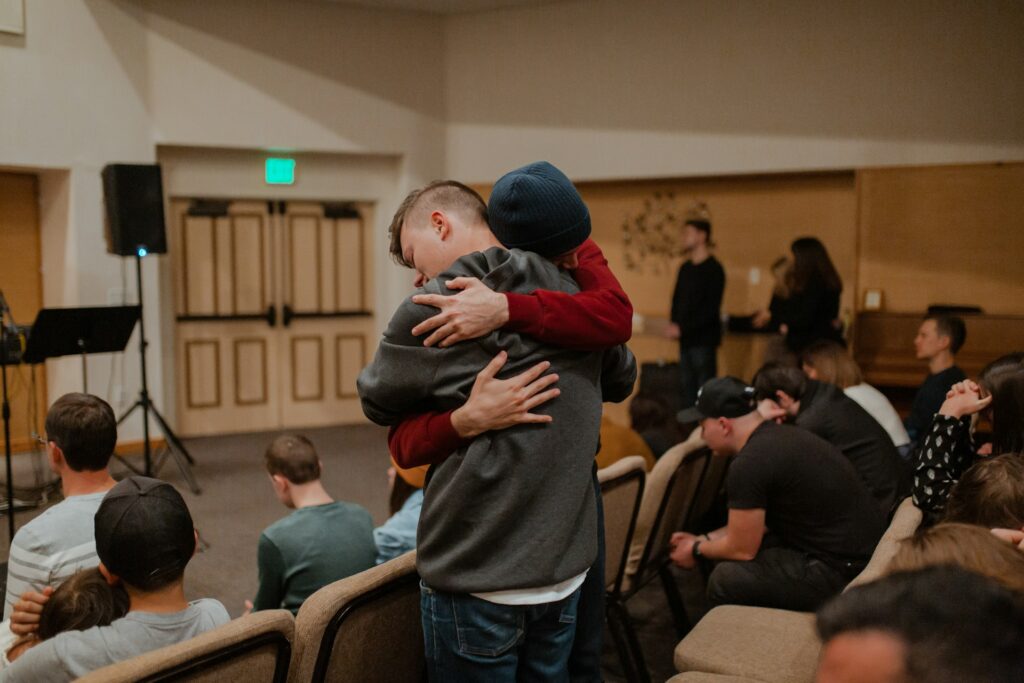Most people don’t mean to be dismissive when talking about trauma at all.

However, that doesn’t stop them from saying things that feel careless, oversimplified, or quietly invalidating. When someone hasn’t lived through deep emotional pain or doesn’t understand how trauma rewires a person’s brain and body, their “advice” often ends up sounding more like judgement. Here are some of the more insensitive and inappropriate things people tend to say when they don’t really get what trauma does, and why those words can feel so off.
1. “That was ages ago, though.”

This one completely misses how trauma works. Just because something happened years ago doesn’t mean the body or mind has caught up. Trauma lingers—it stores itself physically, emotionally, and unconsciously. For someone still living with triggers or long-term effects, hearing this feels like being told to “hurry up and heal,” as if time alone fixes everything. It doesn’t.
2. “At least it made you stronger.”

This can sound like a compliment, but it often puts pressure on people to find meaning in something that hurt them. It also glosses over how painful and messy the actual experience was. Resilience doesn’t cancel out the suffering. Not everyone wants their pain turned into a lesson or a silver lining, and they shouldn’t have to justify it in order to be understood.
3. “Other people have had it worse.”

This is one of the fastest ways to shut someone down. Yes, pain exists on a spectrum, but using that to dismiss someone’s trauma only adds shame on top of what they’re already feeling. Everyone processes things differently. Just because someone else’s story looks more extreme on paper doesn’t mean your experience was “too small” to matter.
4. “You’ve just got to let it go.”

Letting go isn’t a button you can press. Trauma can’t be released on demand—it has to be processed, witnessed, and moved through, not ignored into silence. This one implies that healing is a choice you’re failing to make, which is both unfair and untrue. If it were that simple, people would’ve done it already.
5. “Everything happens for a reason.”

Even if it’s meant to be comforting, this can feel incredibly invalidating. It suggests that the harm had a purpose—or worse, that the person needed to experience it to grow. Trauma doesn’t need to be spiritually rebranded to be acknowledged. Some things are just horrible. Full stop. Trying to make them poetic can unintentionally come across as tone-deaf.
6. “But you seem fine now.”

People with trauma often learn how to mask it. Just because someone looks functional doesn’t mean they aren’t still carrying deep pain or navigating hard internal work behind the scenes. This makes it harder for people to be honest about what they’re still dealing with. It reinforces the pressure to keep pretending everything’s fine when it really isn’t.
7. “You’re just being dramatic.”

This one stings. It frames real pain as overreaction, especially when someone is having a strong emotional response to something that seems small to other people, but is deeply triggering to them. Calling it “drama” not only dismisses the trauma—it shames the person for reacting the way their nervous system has been wired to react. It’s incredibly unhelpful and deeply invalidating.
8. “Aren’t you over that by now?”

Trauma doesn’t follow a set timeline. Healing can take years, and it often happens in layers. Some wounds reopen unexpectedly, long after you thought you’d moved past them. Asking this question turns recovery into a deadline—and can make someone feel broken or behind just because they’re still working through something that hurt deeply.
9. “You’re too sensitive.”

Trauma often heightens sensitivity, especially to certain tones, dynamics, or behaviours. That’s not a flaw. It’s a survival mechanism that helped someone get through something hard. Labelling someone “too sensitive” for reacting to something that genuinely unsettles them shows a lack of understanding and empathy. It tells them to toughen up when what they need is support.
10. “It’s all in your head.”

This old classic totally ignores how trauma lives in the body as much as the mind. It can affect sleep, digestion, immunity, concentration, and mood—and none of that is imagined. Saying this erases someone’s experience and subtly blames them for not “thinking their way out of it.” Trauma is real, and it’s not something you can logic away.
11. “You’re just looking for attention.”

When someone finally opens up about something traumatic, they’re not doing it for show. They’re doing it because it’s hard to carry alone. Accusing them of attention-seeking creates even more shame and isolation. This mindset keeps people silent. And sometimes, it’s said as a way to stay comfortable rather than sit with someone else’s pain. However, real healing needs space, not suspicion.
12. “But your life looks great now.”

Trauma isn’t erased by a good job, a nice house, or a happy relationship. People can have outward success and still carry deep, unresolved pain beneath the surface. This one suggests that healing should be linear or visible—but that’s rarely the case. A good life on paper doesn’t mean someone isn’t still navigating the effects of their past.
13. “You’re stronger because of it.”

This can be comforting when it’s something the person says about themselves, but when it’s said to someone, it often skips over the cost of what they went through. Yes, people can grow through pain. But that doesn’t mean the pain was necessary or that the outcome justifies the trauma. Not every hard thing needs to be turned into a personal success story.
14. “Just don’t think about it.”

If only it worked that way. Telling someone not to think about their trauma is like telling someone not to breathe. The harder they try to suppress it, the louder it gets. What helps isn’t ignoring it—it’s understanding it. Facing it with the right support, processing it over time, and building safety around the parts that still hurt.
15. “Other people have moved on—why haven’t you?”

Trauma isn’t a race. People respond differently depending on their background, support systems, and how the event affected their identity, safety, or worldview. Comparing recovery speeds is deeply unhelpful. This comment often comes from people who want closure more than understanding. But healing doesn’t come faster just because someone else is tired of hearing about it.


